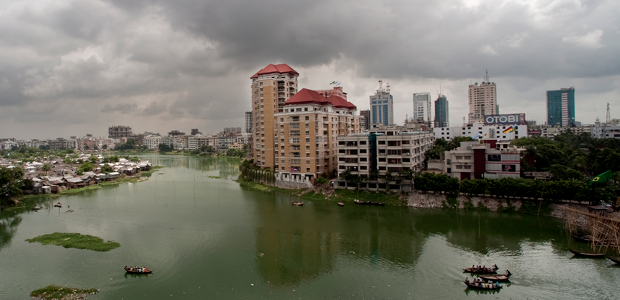Working Paper
Extractive industries and development
In common with several other low-income African economies, in recent years Mozambique has seen a significant expansion of interest and investment in its long-established extractives industries. Huge new gas finds in particular have led to...
Research Brief
Potential benefits and pitfalls of extractives in Mozambique
Mozambique has seen a significant expansion of interest and investment in its extractive industries. New gas finds in the past ten years have led to expectations that these industries will contribute very significantly to the country’s future...
Book
Resurgent Asia
NOW IN PAPERBACK WITH REVISED PREFACE | Gunnar Myrdal published his magnum opus Asian Drama, in 1968, to conclude that Asia's development prospects were gloomy. Since then, contrary to Myrdal's expectations Asia has been transformed beyond...
Blog
Highlights from the 2019 WIDER Development Conference
The World Bank recently estimated that two-thirds of all jobs in developing countries are at risk of automation. This shocking statistic raises an...
Working Paper
Mozambique—bust before boom
This paper is a sequel to an earlier paper that looked in broad terms at many of the issues that Mozambique faces today in managing its new extractive resources. The paper first describes the investment surge that has already been prompted by new gas...
Book
Resurgent Asia
Gunnar Myrdal published his magnum opus Asian Drama, in 1968, to conclude that Asia's development prospects were gloomy. Since then, contrary to Myrdal's expectations Asia has been transformed beyond recognition, the development of nations and living...
Policy Brief
Resurgent Asia
In 1820, Asia accounted for two-thirds of world population and over half of world income. The subsequent decline of Asia was attributable to its integration with a world economy shaped by colonialism and driven by imperialism. By 1970, Asia was the...
Book
Economic Transformation and Income Distribution in China over Three Decades
It is arguable that the most important event in the world economy in recent decades has been the rise of China, from being on a par with sub-Sahara Africa at the start of economic reform to being an economic superpower today. That rise remains under...
Panel discussion
Oxford University Press hosts a conversation on Resurgent Asia
Over 250 people attended the launch of the new open access book Resurgent Asia at the Oxford University Press headquarters in New Delhi on 27 November. The event featured a presentation by author, Professor Deepak Nayyar, and was followed by an...
Wed, 27 November 2019
India International Centre,
Lodhi Road,
New Delhi,
India
Past event
Panel discussion
Asian Transformations panel discussion at India International Centre
On 23 December, Professor Deepak Nayyar, editor of Asian Transformations, led a panel discussion on the recent publication at the India International Centre in New Delhi. The book, Asian Transformations: An Inquiry into the Development of Nations...
Mon, 23 December 2019
India International Centre,
Lodhi Road,
New Delhi,
India
Past event
Lecture
Delhi School of Economics lecture on economic development in Asia, by Deepak Nayyar
On 14 January Professor Deepak Nayyar will attend the Delhi School of Economics to give a lecture on ‘Economic development in Asia: Learning from half a century of transformation’. The lecture draws from his recently published book, Resurgent Asia...
Tue, 14 January 2020
Department of Economics, Delhi School of Economics,
Delhi,
India
Past event
Video
Webcast: Transforming economies – for better jobs
UNU-WIDER in partnership with the United Nations Economic and Social Commission for Asia and the Pacific (ESCAP) will organize a three-day conference on transforming economies in Bangkok, Thailand, on 11-13 September 2019. See the full programme here...

 Join the network
Join the network









